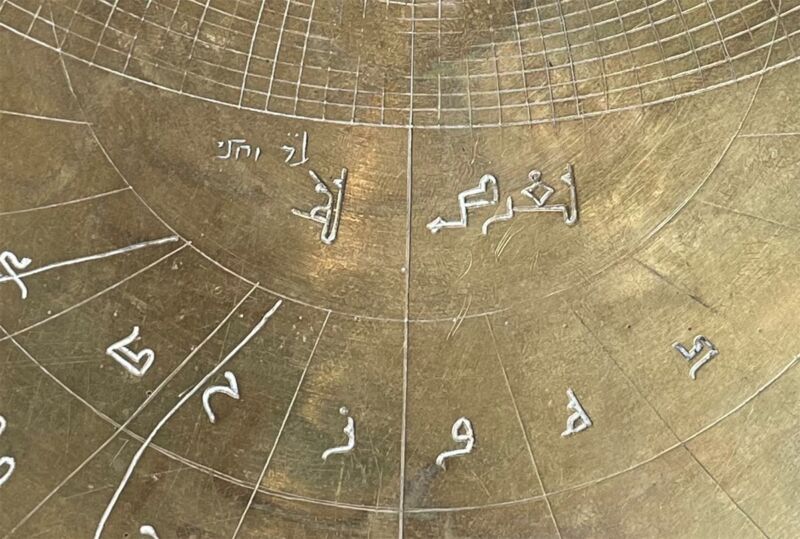
Enlarge / Close up of the 11th century Verona astrolabe showing Hebrew (top left) and Arabic inscriptions. (credit: Federica Gigante)
Cambridge University historian Federica Gigante is an expert on Islamic astrolabes. So naturally she was intrigued when the Fondazione Museo Miniscalchi-Erizzo in Verona, Italy, uploaded an image of just such an astrolabe to its website. The museum thought it might be a fake, but when Gigante visited to see the astrolabe firsthand, she realized it was not only an authentic 11th century instrument—one of the oldest yet discovered—it had engravings in both Arabic and Hebrew.
“This isn’t just an incredibly rare object. It’s a powerful record of scientific exchange between Arabs, Jews, and Christians over hundreds of years,” Gigante said. “The Verona astrolabe underwent many modifications, additions, and adaptations as it changed hands. At least three separate users felt the need to add translations and corrections to this object, two using Hebrew and one using a Western language.” She described her findings in a new paper published in the journal Nuncius.
As previously reported, astrolabes are actually very ancient instruments—possibly dating as far back as the second century BCE—for determining the time and position of the stars in the sky by measuring a celestial body's altitude above the horizon. Before the emergence of the sextant, astrolabes were mostly used for astronomical and astrological studies, although they also proved useful for navigation on land, as well as for tracking the seasons, tide tables, and time of day. The latter was especially useful for religious functions, such as tracking daily Islamic prayer times, the direction of Mecca, or the feast of Ramadan, among others.
Read 7 remaining paragraphs | Comments
